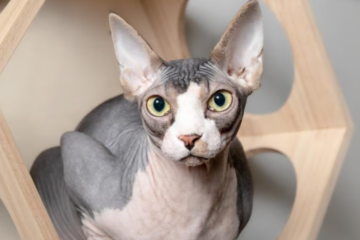Best Kitten Foods: Things to Consider Before Purchase
Welcoming a new kitten into your home is an exciting experience, but it also comes with responsibilities, one of the most important being their diet. Kittens have specific nutritional needs to support their rapid growth and development. In this article, we will cover everything you need to know about kitten foods, including hydration, wet food, dry food, essential nutrients, and the benefits of an organic diet.

What to Consider?
- Before making any pet food purchase always check if essential nutrients relevant to your pet diet are present or not.
- If you find it then check on their nutritional value, is it less or high?, both are not good, you should go with balanced diet per cup according to your kittens weight and age.
- Not Always a costly diet is best diet, be cautious of not getting tricked into making unnecessary purchase, as choosing right things on internet can be overwhelming sometimes.
- As a kitten is in growing phase of his life and requires a quality diet containing all necessary Proteins, Vitamins and minerals, fats and amino acids, your kitten food should be labelled for growth and reproduction or all life stages.

What Your Kittens Require
Kittens grow at a remarkable rate, and their nutritional needs are higher than those of adult cats. Here are some essential factors to consider:
High-Quality Protein: Kittens require a diet rich in high-quality animal protein to support their muscle development and overall growth. Look for foods with chicken, turkey, fish, or beef as the primary ingredients.
High Calorie Density: Due to their high energy levels, kittens need more calories than adult cats. Ensure the food you choose is calorie-dense to meet their energy demands.
Fat and amino Acids: Healthy fats are crucial for brain development and energy. Omega-3 and Omega-6 fatty acids, found in fish oil and flaxseed, are particularly beneficial.
Calcium and Phosphorus: These minerals are vital for strong bones and teeth. A proper balance of calcium and phosphorus is essential to prevent skeletal issues.
Vitamins and Minerals: Vitamins like A, D, E, and essential minerals like zinc and iron are necessary for a kitten’s immune system and overall health.

Which is better option, Wet Food or Dry Food?
Choosing between wet and dry food for your kitten can be challenging, as both have their pros and cons.
Wet Food for Kittens
- Hydration: Wet food contains a high moisture content, which helps keep kittens hydrated.
- Palatability: Many kittens find wet food more palatable due to its texture and aroma.
- Nutrient Density: Wet food tends to be more nutrient-dense, providing more protein and fat per serving.
- Dental Health: It can help maintain dental health as it is easier to chew for young kittens with developing teeth.
Dry Food for Kittens
- Convenience: Dry food is convenient to store, measure, and serve.
- Cost: Generally, dry food is more cost-effective than wet food.
- Dental Benefits: The crunchy texture can help reduce plaque and tartar buildup.
- Free-Feeding: Dry food can be left out for kittens to nibble on throughout the day.
Know what are 6 Life stages of a cat

Essential Nutrients
When selecting kitten food, ensure it contains the following essential nutrients (You can find nutritional value details on the back of any food packet)
- Protein: Should be the primary ingredient, with at least 30-40% of the diet being high-quality protein.
- Fat: Healthy fats should make up around 20-30% of the diet.
- Taurine: An essential amino acid for heart health, vision, and reproduction.
- Vitamins and Minerals: Balanced vitamins and minerals for immune support and overall health.
- Fiber: Aids in digestion and prevents constipation.
Hydration
Kittens need adequate hydration to support their overall health. While they obtain some moisture from their food, especially if they consume wet food, having a fresh supply of clean water available at all times is essential. Proper hydration aids in digestion, nutrient absorption, and maintaining healthy skin and coat.
Is Organic Diet an option?
An organic diet can be beneficial for your kitten, as it typically contains fewer artificial additives, preservatives, and pesticides. Organic kitten foods are made from high-quality ingredients and often include human-grade meats and vegetables. They can help reduce the risk of allergies and promote overall health. However, it is essential to ensure that any organic food you choose still meets all the nutritional requirements for kittens.
Selecting the best kitten food for your little companion is crucial for their growth, development, and long-term health. Consider their unique nutritional needs, ensure they stay hydrated, and choose between wet and dry food based on your convenience and their preference. Look for foods rich in high-quality proteins, healthy fats, essential vitamins, and minerals. An organic diet can offer additional health benefits, but always ensure it meets all the necessary dietary requirements.
By providing your kitten with a balanced, nutritious diet, you’ll set them on the path to a healthy and happy life. So always have you Kitten Best Kitten Foods.
Best Kitten Foods | Best Kitten Foods | Cats Wallpaper | Best Kitten Foods | Best Kitten Foods


